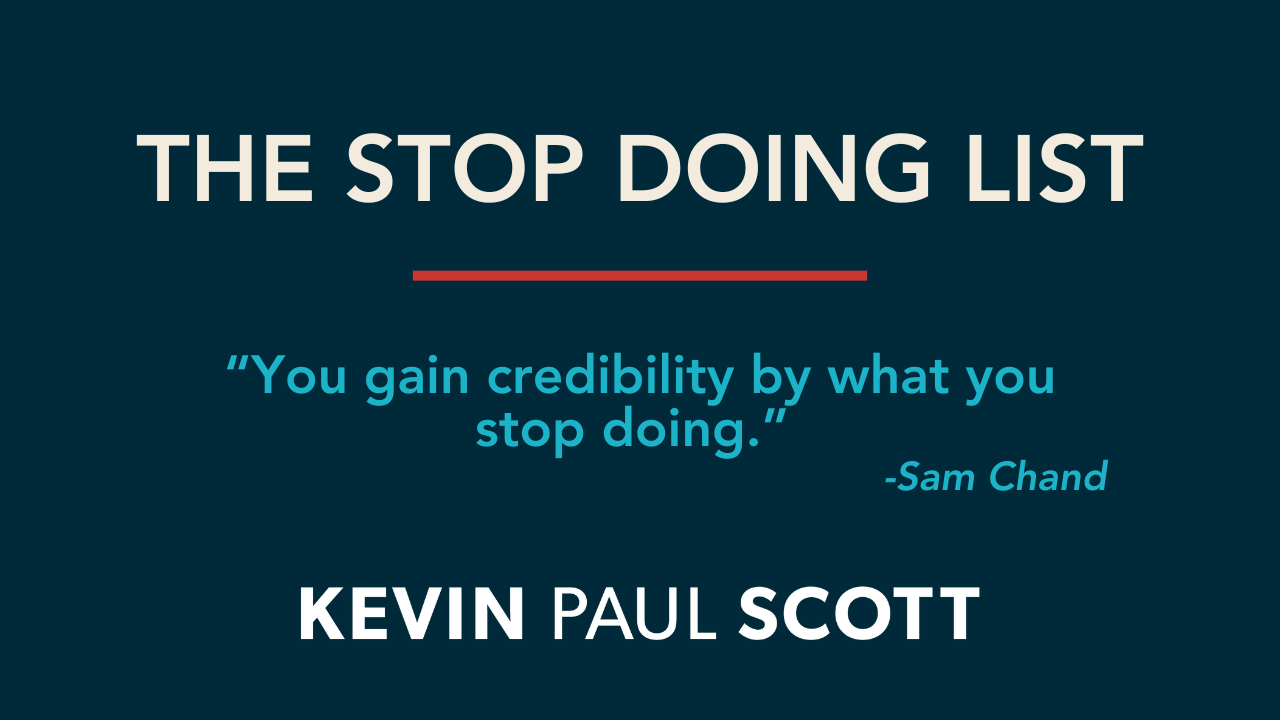Two weeks ago, I didn’t want to come into work on Monday morning. One of my best friends passed away the day before, so there were a lot of other things on my mind. What I really wanted to do that morning was “call in sick” or tell them my tire was flat. It really didn’t matter what the excuse was; I just didn’t feel like being there.
However, that day was a particularly important one for our organization—five new people were joining our team. We wanted their first day to be memorable, impactful, and intentional. As a co-founder and key leader, I needed to be engaged and present. I didn’t have the luxury of calling in sick or taking the day off on this crucial day for our company.
This reminded me of the fact that leadership has been put on a pedestal. Everyone thinks they want to lead. Everyone wants the influence, and even the responsibility, but not everyone is willing to pay the price of leadership. When we lead, our decisions, our presence, and our example matter more. In fact, the greater our influence, the more limited our options become. Leadership is like love; once we’re committed, we don’t get to choose when we want to do it. When I married my wife, I made a commitment to love her for the rest of our days. I don’t get to take a break on the days I don’t feel like loving her.
Leadership is like love; once we’re committed, we don’t get to choose when we want to do it.
The same is true in life and leadership. The higher the level of leadership, the fewer options you have. Think about it. When you become a manager at a retail store, you have the opportunity to grow leaders and take on more complex tasks, but you have to be available to solve problems whenever the store is open (even on your days off). When you become a parent, you gain the blessings of influence and responsibility that come with raising a child, but it’s also much more difficult to travel, to make last minute plans, and to do some other things you want to do.
Let me pause for a second to say that leadership is a great thing. I’m passionate about encouraging leaders in all phases and stages of life. However, we must remember that leadership comes with a cost, and the most effective leaders understand and embrace this fact for the good of the people they lead.
When God puts people in positions of leadership and situational influence, it comes with a great weight of responsibility. That’s why we’re given this word of caution: “Not many of you should become teachers, my brothers, for you know that we who teach will be judged with greater strictness” (James 3:1, ESV). Teachers, leaders, and anyone in a position of influence must be present to guide and influence the people in their care, especially in challenging circumstances.
We don’t get to pick and choose when we lead. Even when I’m out of the office, I am still leading.
When someone in your small group is having a crisis, you, as the leader, have to be there.
When a team member is sick and can’t open the store, you, as the manager, have to go into work on your day off.
When your babysitter cancels, you, as the parent, have to stay home and miss a night out with friends.
When church members are frustrated about something that seems trivial, you, as the pastor, have to address it.
When a crisis happens at work when you’re on vacation, you, as the leader, still have the obligation.
This isn’t about being a workaholic or never having a day off, it’s just a reminder that your role doesn’t stop when you leave or when you don’t feel like doing it. Leadership is important, but it’s not all glamorous. Once you’re committed to lead, you don’t have a choice of when you do it or not. So if you’re considering a leadership position, understand the cost. For those of us called to lead, the price is always worth it.

























.svg)




